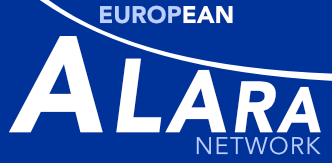ALARA Newsletter - Issue 26 - February 2010
- Details
Author: A. Schmitt-Hannig (BfS, Germany)
The development of a common ALARA culture among radiation protection professionals and other stakeholders in Europe is one of the fundamental objectives followed and shared by all EAN members. Moreover the 10th EAN Workshop on Experience and new Developments in Implementing ALARA in Occupational, Public and Patient Exposures (Prague, 2006) identified that there is no universally agreed definition of what ALARA culture is, despite the wide acceptance of the need for such a culture. It was then recommended that EAN should develop a definition of ALARA culture.
In this context, the EAN Steering Committee proposed to give its support to the work engaged by the IRPA working group on Improvement of the Radiation Protection Culture which was launched at the occasion of the IRPA 12 Associate Societies Forum held in Buenos Aires in October 2008 with the aim of preparing IRPA Guiding Principles on that topic. The EAN proposal was officially accepted by IRPA in May 2009.
The objective of the WG is to maintain and further develop the high level of radiation protection by
- promoting the ALARA culture in all fields of application,
- implementing the ALARA principle into practice, and
- analysing feedback from implementing ALARA in various sectors.
The EAN WG ALARA Culture will produce a document, which will reflect the EAN position on the role of ALARA in radiation protection culture. The document will be discussed and then endorsed by the Members of the network, and finally published on the EAN Websites welcome page.
The EAN position will be developed along the lines of the EAN Workshop recommendations on ALARA Culture and on the basis of the discussions of the WG ALARA Culture, the EAN Steering Committee, the subnetworks (ERPAN and EAN-NORMnet) and the input of the EAN cooperation partners (EFNDT, EFRS, ESR and EFOMP).
The first meeting of the Working Group took place 2nd October 2009 in Rome. The findings of this meting were:
- The distinction between ALARA and good radiation protection is often difficult to make, as the optimisation principle is the central concept of radiological protection.
- Thus it may not be relevant to propose a specific definition of ALARA culture beside the definition of RP culture, but to identify the specific contribution of the ALARA approach in the radiation protection culture.
- The ALARA approach is the most important element in the RP culture because of the linear no-threshold dose-effect relationship (LNT), new findings of new health effects due to ionising radiation, and the application of the precautionary principle.
- Implementation of the ALARA principle in practice is a major contribution to RP culture. The implementation involves elements such as:
- ALARA training,
- commitment at all levels,
- task planning: prediction of doses likely to be received during specific tasks or specific exposure situations,
- dose evaluation and risk estimation (potential exposure situations),
- analysis whether or not to further reduce doses, remediation actions and feedback,
- relationship between justification-optimisation, etc.
A short and simple definition of the ALARA approach to radiation protection culture has been developed and will be placed on the EAN homepage:
EAN Proposal - Definition of the ALARA Approach to Radiation Protection Culture * Based on scientific knowledge and characterised by risk awareness, optimisation of radiation protection is an ongoing and iterative process, to keep:
taking into account technical, economic and societal developments, requiring qualitative and quantitativejudgements and involving all parties having an interest in or concern about an exposure situation. The implementation of the ALARA approach in practice is the most important element of radiation protection culture because of the linear no threshold dose-effect relationship (LNT), new findings of new health effects due to ionising radiation, and the application of the precautionary principle. The implementation requires an adequate number of well trained and
experienced radiation protection specialists familiar with the ALARA
principle and associated procedures and ready to spread the ALARA
culture within their field of activities. |

